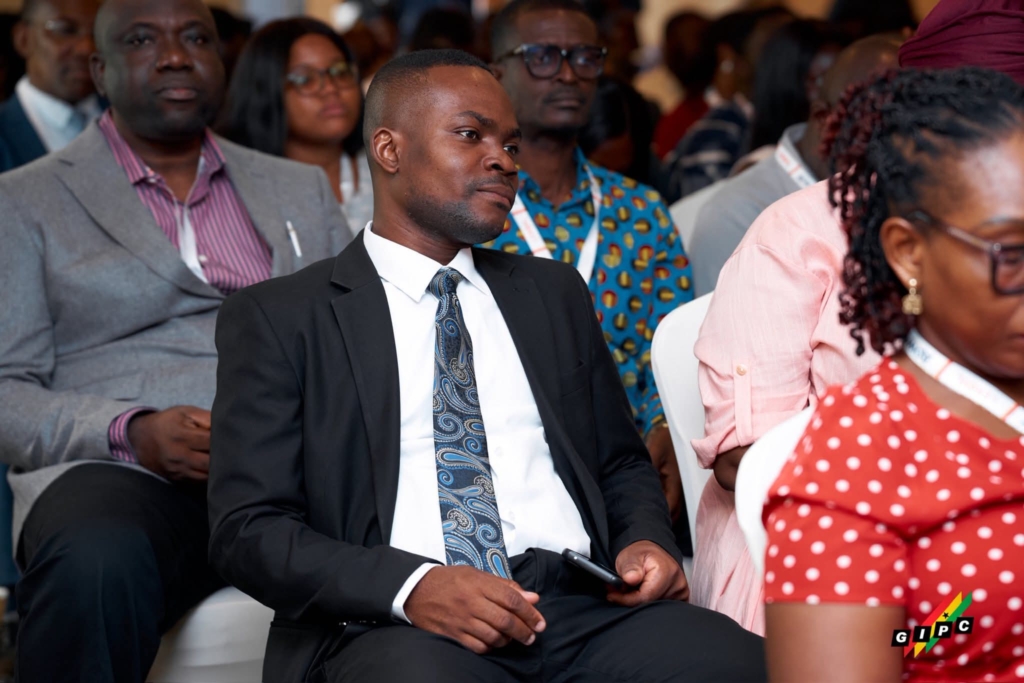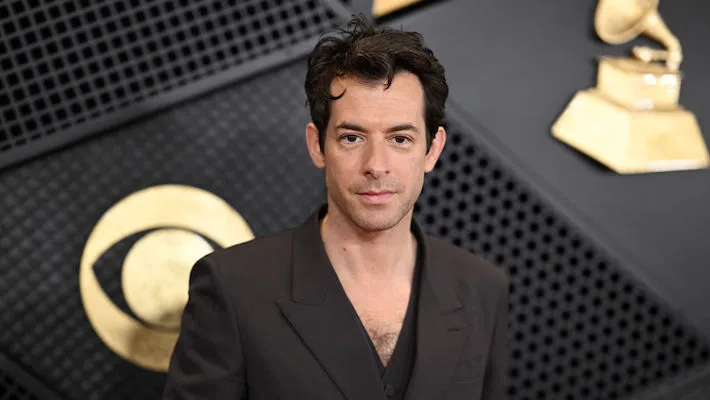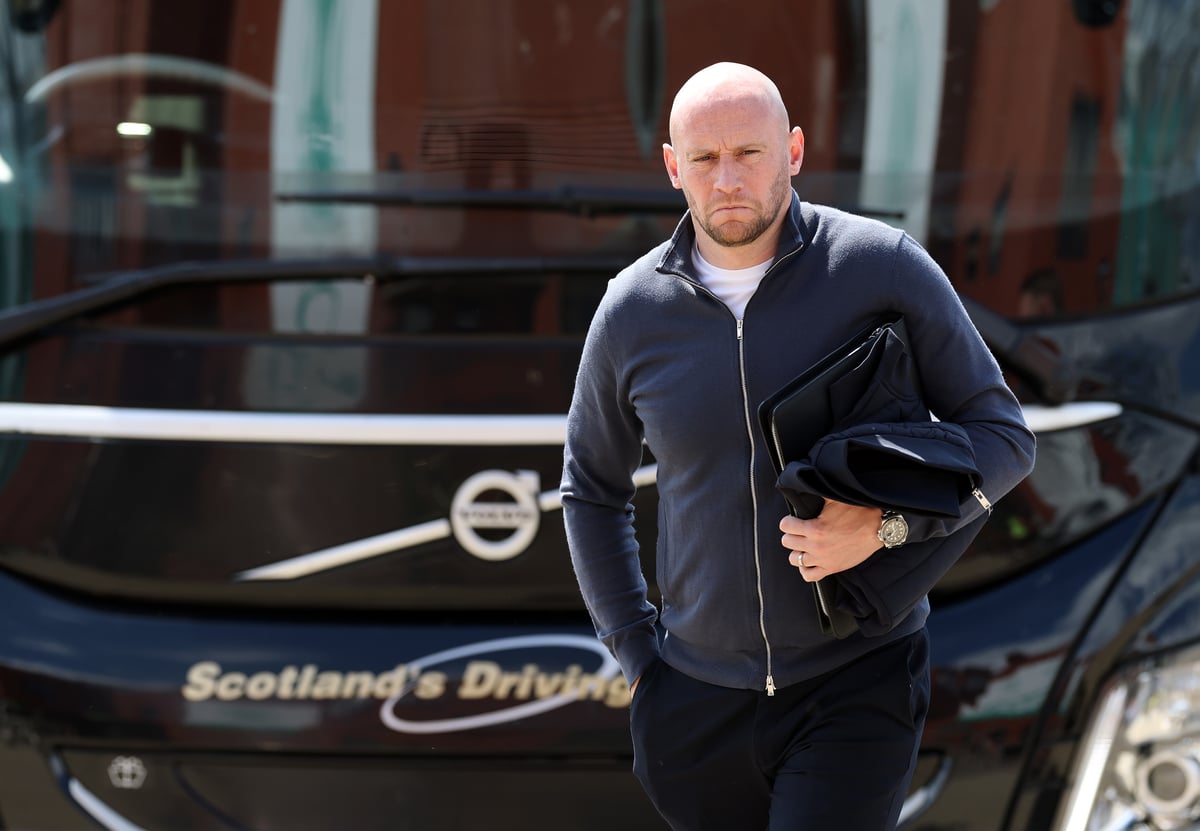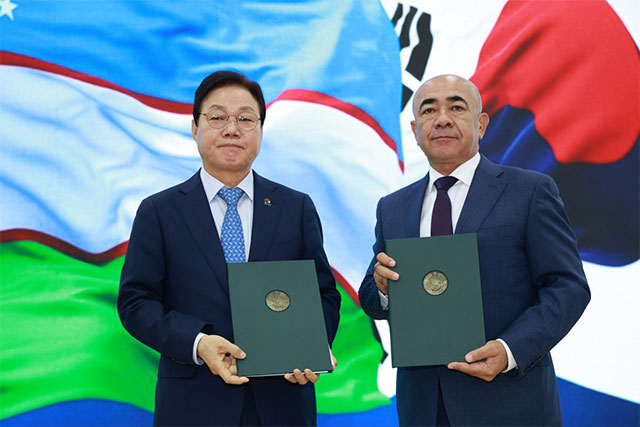By NewsHawks
Copyright nehandaradio
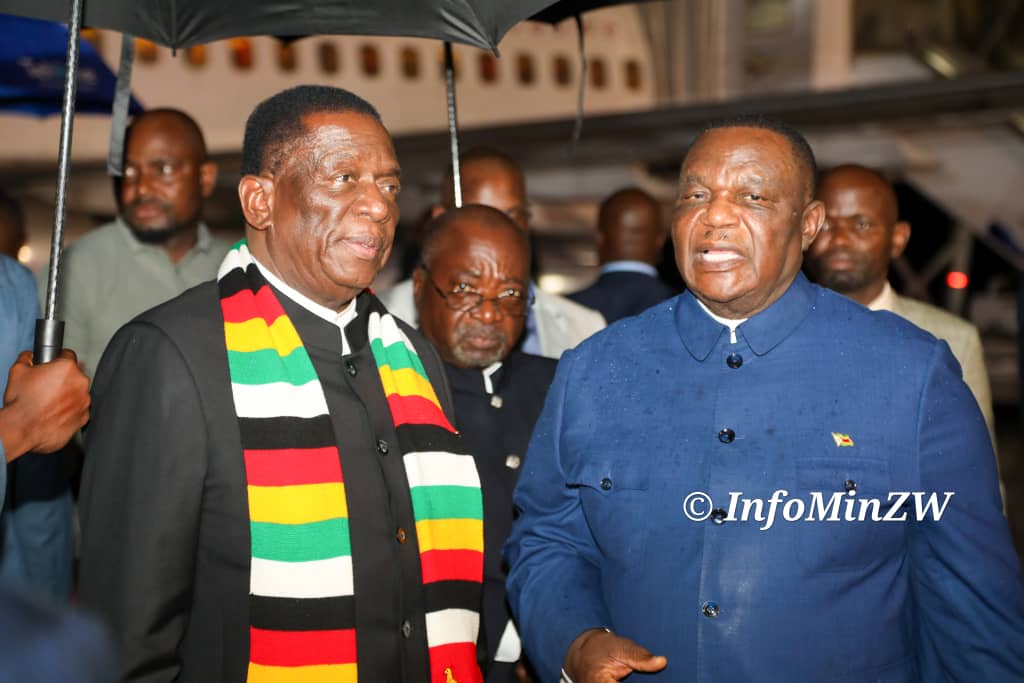
By NewsHawks Investigative Desk
HARARE – Just before Zanu PF’s crucial politburo meeting last week – on Wednesday, 17 September 2025 – at the party’s headquarters in Harare, President Emmerson Mnangagwa fiercely clashed with co-Vice-President Constantino Chiwenga in an explosive kerfuffle over a series of issues buffeting the ruling party: Succession, corruption and demand for action.
At the centre of the controversy and noise inside the cockpit was a damning corruption dossier – which some Zanu PF insiders call “ZviganandaGate” – that had been brought by Chiwenga to the briefing held prior to the politburo meeting.
During the briefing, which was attended by all top members of the Zanu PF presidium – Mnangagwa, Chiwenga, co-Vice-President Kembo Mohadi, chairperson Oppah Muchinguri-Kashiri and secretary-general Obert Mpofu (subsequently removed) – the corruption report was tabled for discussion by the Top Five amid demands for urgent action.
Chiwenga presented the report which he said needed to be discussed as an emergency because corruption was now badly damaging the party, undermining its electoral prospects in future elections and threatening its stay in power.
In a feisty mood, Chiwenga explained that corruption had become rampant in the party; a deadly cancer in society and an existential threat to Zanu PF.
He said the cash-rich Zvigananda (dodgy businessmen; tenderpreneurs) around Mnangagwa – namely Kudakwashe Tagwirei, Wicknell Chivayo, Pedzisayi “Scott” Sakupwanya, Tempted Paul Tungwarara and others – were now the most corrupt elements in the party engaged on grand scale corruption and looting of public resources, as well as ostentatious display of wealth and conspicuous consumption.
Their showy donations of money, cars and other trinkets were funded from stolen funds, some of it from the party.
This, Chiwenga explained, was wrong and should be stopped immediately.
Chiwenga also touched on the hot succession issue, saying Tagwirei and others were funding the 2030 campaign to extend Mnangagwa’s rule beyond his 2028 second term constitutional limit.
He said it has now become clear to him Mnangagwa is behind the 2030 campaign.
Although Mnangagwa denies it, repeatedly saying that he is a “constitutionalist” and will not extend his term beyond 2028, Chiwenga said he did not believe that anymore.
He said the President must move to arrest all corrupt businessmen and officials, particularly Zviganandas.
Chiwenga said the corrupt elements should be in jail to stop the ongoing industrial scale corruption, plunder and economic haemorrhage.
Chiwenga told Mnangagwa that he would not remain silent and watch Zanu PF being corrupted, dragged through the mud and positions being put up for sale for buying by Tagwirei and his cronies.
He vowed that he will not let that happen.
On succession, Chiwenga demanded that Mnangagwa clear the air on the divisive issue.
Chiwenga also said the issue of co-options into the Central Committee should not be discussed in the politburo as it was also divisive and some of those who want to get in like Tagwirei had not followed processes and procedures.
As pressure mounted over these issues, Mnangagwa later responded by denouncing corruption – two days in a row, first at the politburo on Wednesday last week and then at the Central Committee meeting the following day.
After the briefing, Mnangagwa left in a huff – fuming – and went to the politburo, leaving behind other members of the presidium.
When he arrived in the politburo ahead of his other fellow Top Five colleagues, Mnangagwa wasted no time in delivering his keynote address centred on the corruption dossier.
Recent politburo meetings have been defined by infighting and drama, with Mnangagwa and Chiwenga clashing over succession and corruption blamed on the President’s associates.
Agitated and showing he was miffed, Mnangagwa started by saying if anyone in the politburo thought he was not running the country well, he was willing to go.
He did not threaten to resign, but challenged the politburo members to say he is failing, and if that happened he would quickly throw in the towel and call it a day.
No one responded and then he started his address, focusing on the corruption dossier which alarmed the politburo that has 49 members.
Mnangagwa made it clear that the dossier he was presenting had come from Chiwenga.
The document detailed how Zanu PF had helped Tagwirei set up Sakunda Holdings and put a structure which accommodated the ruling party’s interests in the company.
The document said Tagwirei fronted the Sakunda project as a private sector representative who had the majority stake, with Zanu PF getting 45%.
Effectively, he said Sakunda is a joint-venture between Tagwirei and Zanu PF.
Tagwirei’s previous explanation of how he formed it is different.
He said he sold a house and his possessions to start the company from scratch.
Chiwenga said Mnangagwa was one of the trustees representing Zanu PF interests which were housed under CBZ Nominees.
CBZ Nominees held shares in Sakunda on behalf of Zanu PF, the ultimate beneficial owners, he said.
The Vice-President said this allowed for easier management and administrative processes.
However, Chiwenga’s report said Tagwirei was taking the party’s profits and dividends, while giving it peanuts as and when he wants.
The money Tagwirei has been donating to Zanu PF to fund its operations and elections is just a fraction of what the party is entitled to, Chiwenga said.
Although Tagwirei thinks he is helping Zanu PF, the report said, the ruling party made him and should be getting its fair share, which has not been happening.
After delivering the document, Mnangagwa told the meeting the author of the dossier – Chiwenga – would explain further the issues raised.
Chiwenga came in guns blazing. He said Zanu PF has 45% in Sakunda, but has not been given a cent due to greed and corruption.
Further spilling the beans, Chiwenga said Sakunda and Tagwirei have made US$3.2 billion from various lucrative state contracts, tenders and deals with government which were facilitated by the ruling party or its leaders, but Zanu PF was getting nothing.
He pivoted the previous looting of Zanu PF companies which was blamed on Mnangagwa.
An investigation into that was done in 2004 under the late former president Robert Mugabe.
Mnangagwa, who previously was secretary for treasury, was blamed for the looting of Zanu PF companies.
The ruling party had a chain of companies, some very successful, but all were destroyed through mismanagement, corruption and incompetence, a hallmark of Zanu PF rule.
Chiwenga by name accused Tagwirei and other Mnangagwa business cronies of corruption and stealing from the party, and in the process destroying the economy.
He called for their immediate arrests, leaving the politburo shocked and in disbelief.
After Chiwenga’s explanation and sustained attacks on Tagwirei, there were several interventions and reactions to the document presented by Mnangagwa.
First, Zanu PF secretary for security Lovemore Matuke, who is also State Security minister, jumped in saying the report sounded like war veterans leader Blessed Geza’s addresses and was an attack on the President and the party.
He said the Geza-style report should not distract the party’s attention from real issues.
In the process, he implicated Chiwenga in the Geza attacks against Mnangagwa.
Matuke said the document betrayed a raging power struggle in the presidium and that must be resolved because Mnangagwa was still in charge, not Chiwenga.
Angered by Matuke’s remarks Chiwenga told him about the history of Zanu PF and the liberation struggle; how the party was plunged into internal conflicts, political turmoil and how the deep problems were resolved, warning some of the events like the Nhari Rebellion show that infighting can be deadly.
The Nhari Rebellion was an armed mutiny within Zanu’s military wing, Zanla, in late 1974, led by Thomas Nhari.
It was a rebellion against Zanla commander Josiah Tongogara’s high command, fueled by internal ethnic tensions, grievances over communication failures, and resentment that Manyika fighters were being sent to the front lines, while Karanga fighters were kept in the rear.
The explosive mutiny was brutally suppressed by Zanla forces and was a significant event that highlighted the intense internal conflicts and discipline problems within Zanu’s liberation wing.
In the process, Chiwenga told Matuke, a Mnangagwa ally from Masvingo, he did not go to war and cannot criticise him.
After Matuke, another politburo member Eliphas Mashaba from Bulawayo came in.
Mashaba said corrupt people must be arrested and he got support from many politburo colleagues.
However, Mashaba said the issue of corruption must not be mixed with the 2030 political agenda as they are not related.
He said 2030 is coming from the people, not from leaders, and the party should implement the wishes of the majority, to which many agreed.
Another contribution came from senior politburo member Frederick Shava, a Mnangagwa ally, who is also Higher and Tertiary Education minister.
Shava said that corruption issue was too sensitive and should be discussed at the presidium level.
He said even if it had already come to the politburo, people could express themselves, but it should go back to the Top Five and be resolved there.
Legal Affairs secretary Patrick Chinamasa, now Treasurer-General since yesterday (23 September), came in defending Tagwirei, saying he was contributing a lot to the party and must not be vilified.
He said Tagwirei was not a corrupt individual, but a successful businessman.
Chinamasa is close to Tagwirei and has been fighting for him to get into the Central Committee from which he has been barred by Chiwenga.
Tagwirei reportedly has presidential ambitions, something he denies.
Chinamasa facilitated Tagwirei’s payments from government for Command Agriculture programmes through cash and treasury bills when he was Finance minister.
At that point, Mpofu quickly intervened and told Chinamasa that his contribution was not necessary as the issue was now going back to the presidium.
Mpofu was part of the Zanu PF presidium until Tuesday when he was removed for backing Chiwenga.
Mohadi then said it would be better if the issue could be referred back to the presidium for further discussion.
The meeting then agreed and resolved to do that.
There was no committee to investigate the corruption issue which was formed inside the politburo meeting as reported.
From the political kerfuffle, the meeting then focused on the forthcoming annual conference in Mutare from 13-18 October.
On Monday, Zanu PF spokesperson Chris Mutsvangwa, a close Mnangagwa political ally, held a press conference viciously tearing into Chiwenga, while vigorously defending Tagwirei and Zanu PF patronage-based tenderpreneuers, as well as Matuke.
Mutsvangwa, a trusted lethal Mnangagwa political weapon, belligerently countered Chiwenga’s narrative and attacked his character, saying he should not undermine and be jealous of Tagwirei and others’ success.
Mutsvangwa said Chiwenga was not the only one who fought in the liberation war and was just like many others, not a superhero.
After Mutsvangwa’s counter against Chiwenga, Mnangagwa further pushed back through surprise politburo changes.
In a move design and calculated to thwart Chiwenga’s growing presidential ambitions, Mnangagwa removed Mpofu from the presidium and replaced him with Jacob Mudenda as secretary-general.
Mpofu was made secretary for ICT, a major demotion into the political Siberia in the politburo.
Former ICT secretary Ziyambi Ziyambi, who is also Justice minister, took over as legal affairs chief, replacing Chinamasa who substituted Mudenda as treasurer-general.
With Chiwenga now tightly cornered and Mnangagwa even skipping the United Nations General Assembly in New York, United States, to avoid leaving the country at the wrong time, the stage is now set for an explosive fight at the party’s crucial annual conference from 13-18 October in Mutare – a do or die for the fearless political rivals locked in mortal combat.
